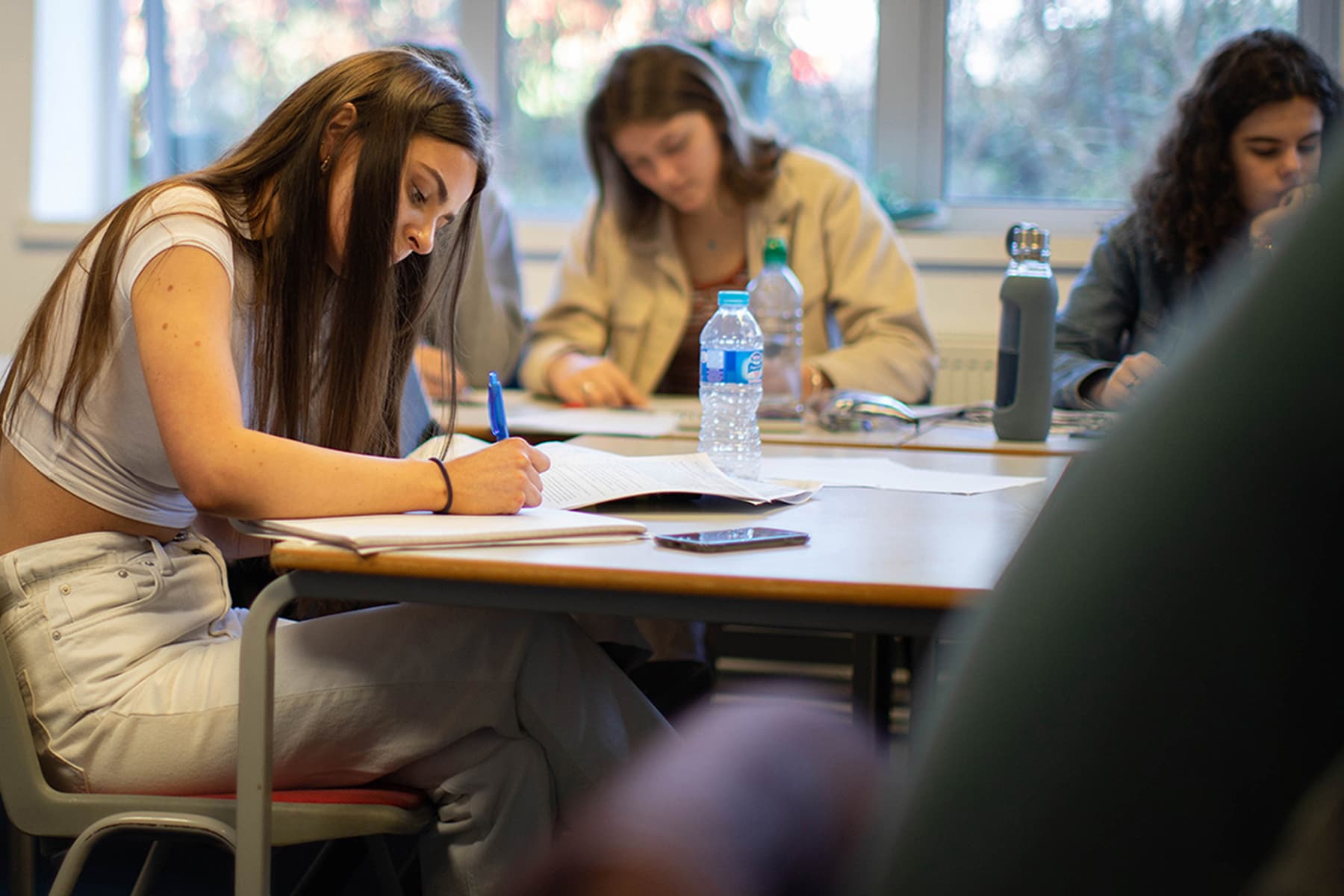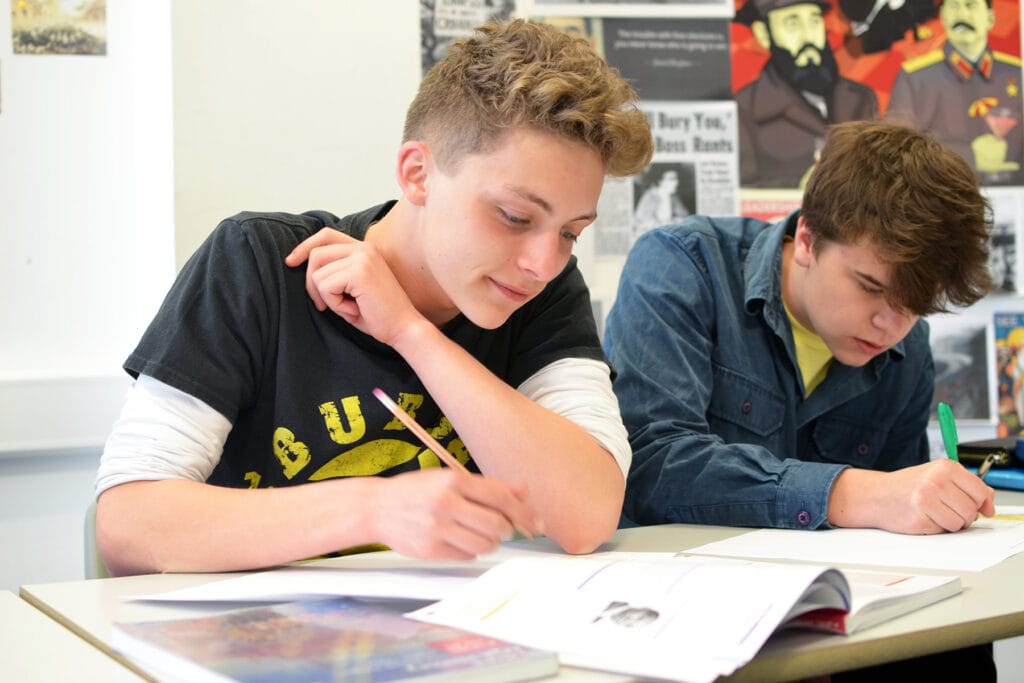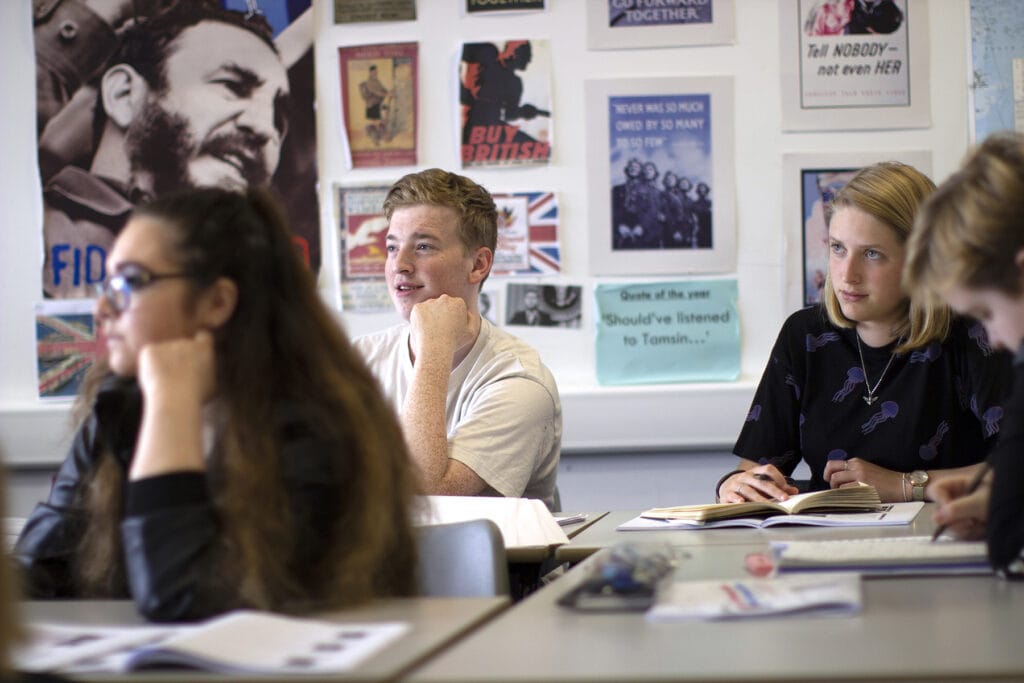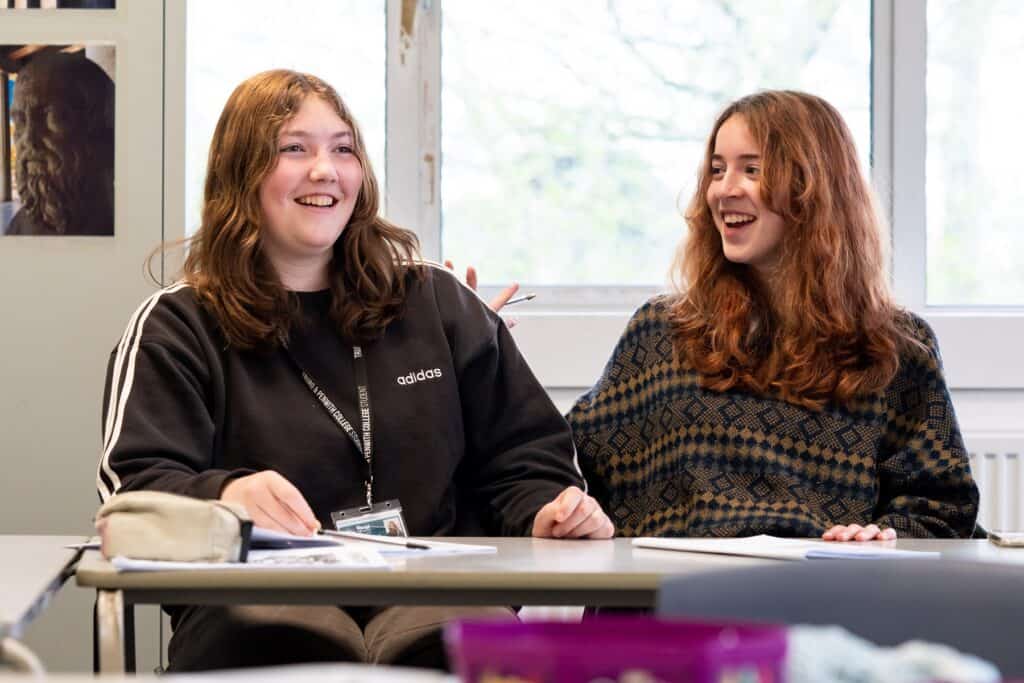New students starting in September: You can find more information about Induction days and submitting your GCSE results in our Start of Year Guide.
WHY CHOOSE THIS COURSE?
A Level Sociology will introduce you to points of view on society, including those which largely approve of the way it works (Functionalism) to those which argue for change (Marxism and Feminism). In Sociology, much of what we investigate is open to interpretation; it is therefore desirable if students enjoy discussions and debates. You must also like reading and writing as these are essential elements of the course. By studying Sociology, you will learn to think critically and independently about society and your place in it, gain the tools to think for yourself, and develop an informed understanding of the world around you.
Apply for this course
Start date: 08/09/2025
TOP COURSE HIGHLIGHTS
Criminology
social inequality
current affairs
everyday relevance
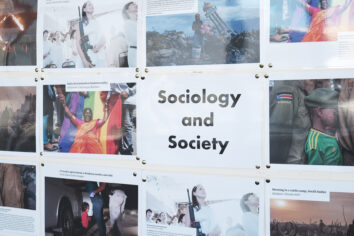
Always new and interesting
This course offers a good introduction into criminology and we explore the problems caused by social inequality in terms of gender, ethnicity and class. This often links to significant current affairs so the subject is always developing in new and interesting ways.

thought provoking topics
You will be able to apply your own life experiences of education and family to the course. Many of the topics we cover are extremely thought provoking including modern day slavery, racism in schools and the decline of religion in western society.
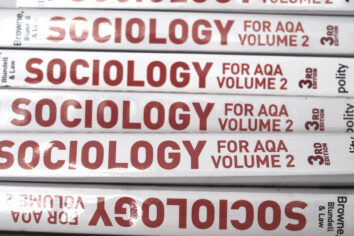
expert lecturers
Expert lecturers who know their subject and have experience developing learners’ written skills and powers of analysis.
WHAT WILL I LEARN?
During the first year of the course students will be introduced to the key sociological perspectives; Marxism, Functionalism, Feminism and Postmodernism. These perspectives will then be applied to the Education and Families and Households units. During the second year of study the course covers Crime and Deviance, Beliefs and Sociology Theory. Research Methods will be covered in both years of the course. Two core themes run throughout the course, socialisation, culture and identity and social differentiation, power and stratification. The focus is on UK society today, with consideration given to the impact of globalisation on our society.
Families and Households: This unit examines the role of the family in contemporary society and how changes in the family have occurred over time. In this unit the nature and extent of changes within the family are studied, with reference to gender roles, domestic labour and power relationships. The changes in the nature of childhood is considered and how the status of the child has changed over time along with the change in demographic trends; such as how birth rate and death rate have affected the family.
Education with Research Methods: In a society dominated by debates around the effectiveness of education we develop an understanding of the factors influencing underachievement. Particular focus is on the difference in performance between male and female pupils and on the experiences and achievements of ethnic groups within the education system.
We also look at how sociologists research issues in society. This unit explores the methods that are used in research and examines previous sociological research. The problems associated with conducting research are examined. Students are also able to carry out their own research.
Beliefs in Society: Understanding beliefs is central to sociology because beliefs shape the way we see the world and influence how we live. This unit focuses on the social role of religion and its functions for individuals, groups and society as well as the diversity of religious beliefs and organisations including cults, sects, denominations and New Age movements. This unit also looks at science as a belief system and the way in which ideology can serve the interests of particular groups.
Crime and Deviance with Theory and Methods: This unit focuses on explanations for patterns of behaviour and issues relating to social order and control. It provides an in-depth look at the main sociological theories and how they can be applied to the study of crime and deviance. We cover issues such as why certain groups in society appear to commit more crime than others, victims of crime and new developments such as global crime, people trafficking and cyber-crime. This unit continues the examination of research methods used by sociologists, with particular reference to researching crime and deviance.
WHERE WILL IT TAKE ME?
A qualification in Sociology is highly valued by many universities and employers alike. Sociology is also an excellent subject to complement many courses, such as English, Psychology, Politics, Economics, History and Education. Studying Sociology opens the door to a fantastic range of interesting and rewarding careers.
It will teach you a range of skills including critical thinking and using evidence to support an argument. The objective and rigorous nature of this subject ensures that a range of careers, such as management, human resources, social work, the civil service, the criminal justice system, national or local government and law.
ASSESSMENT ARRANGEMENTS
You will be formally examined on each unit that you study. The examinations are traditional and essay-based and are sat at the end of the second year. There are three formal exams, each lasting two hours.
ENTRY REQUIREMENTS
Five GCSEs at Grade 4 or above in appropriate subjects, with a Grade 6 in English or another Humanities subject as extended writing is a significant part of assessment.
information & support
CONTACT:
Kath Culkin: kathc@truro-penwith.ac.uk
Dan Strick: danstrick@truro-penwirh.ac.uk
Awarding Body: AQA
Meet the staff, tour the campus and find out about life as a student at one of the best colleges in the country.
